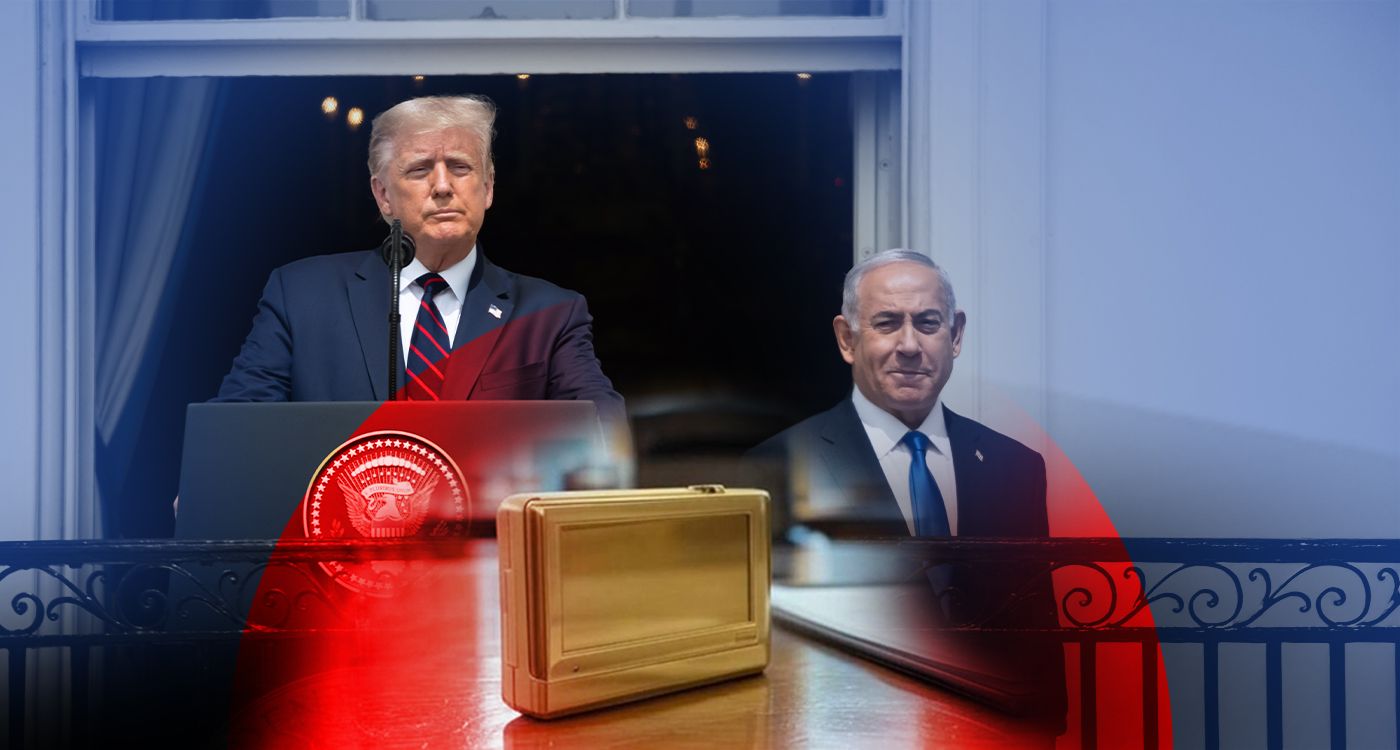- Home
- Middle East
- The Golden Pager and the Irony of Espionage in the Middle East

©This is Beirut
History is often written in treaties. Sometimes, it’s forged in war. And sometimes, apparently, it’s written in golden pagers.
Yes, you read that correctly. In a moment that blended Middle Eastern geopolitics with the aesthetics of a 1990s tech museum, Israeli Prime Minister Benjamin Netanyahu gifted US President Donald Trump a golden pager, along with a standard one, referencing a clandestine operation against Hezbollah last year, an operation that changed the whole war game between Hezbollah and Israel. Netanyahu remarked, “That was a great operation”, highlighting the success of the mission, a mission that crippled over 2000 members of Hezbollah. But let’s pause for a moment. This suggests that the mission was so impactful it deserved a physical, commemorative artifact—not just any object, but a gold-plated piece of obsolete spy tech. The message? As if to say, "We pulled off something so remarkable, we’re making souvenirs."
This isn’t simply a pat on the back; it’s a flex—a statement from Netanyahu that reads, "We outmaneuvered Hezbollah in its own game." By presenting this gift so publicly, Netanyahu reinforced his close ties with Trump while subtly reminding the world—and his own political base—that he remains a key player on the international stage, even as Israel faces both internal and external crises. The gift wasn’t just for Trump; it was a message to Israel.
Will history remember the grand battles between Israel and Hezbollah? The 2006 war? The shadow wars in Syria? The precision strikes? Or will we one day study "The Great Pager Operation of 2024"?
Because if a golden pager is the new benchmark for historic military victories, then perhaps it’s time to reassess what constitutes success in the Middle East.
For years, Hezbollah’s counterintelligence was feared. They boasted about their ability to sniff out spies, arresting and sometimes executing alleged collaborators. They proudly framed every internal crackdown as a triumph against Zionist infiltration. Any Lebanese nationalist who dared to criticize Hezbollah’s grip on the country was labeled a Zionist agent or a CIA recruit. The irony? Hezbollah itself turned out to have the biggest nest of spies and double agents in the history of the Lebanon-Israel conflict.
In recent years, Hezbollah has been rocked by one of the greatest intelligence scandals in its history. It turns out that Israel didn’t just have one source inside Hezbollah—it had an entire network. Senior operatives, once thought to be die-hard loyalists, were caught feeding intelligence to the enemy. From battlefield movements to missile storage locations, sensitive secrets were handed over not by foreign agents, but by Hezbollah’s own men.
The very same organization that spent years accusing Lebanese critics of being spies had become one of the most infiltrated military groups in the region.
And here’s the kicker: the golden pager Netanyahu gave Trump was a nod to an operation that exposed this very reality. It’s almost poetic. Hezbollah, which built its reputation on counterintelligence and internal security, has now been outplayed by the very same tactics it spent decades warning about.
Maybe the golden pager wasn’t just a relic of an operation. Maybe it was a trophy—a way for Netanyahu to remind Hezbollah, and perhaps even the world, that despite all the bravado, the real victories in intelligence wars aren’t declared on TV screens. They happen in silence, through small betrayals, and in the untraceable messages exchanged between a double agent and his handler.
And if Hezbollah wants to keep calling its critics traitors, perhaps it should first check its ranks. History will remember who the real infiltrators were.
Read more




Comments